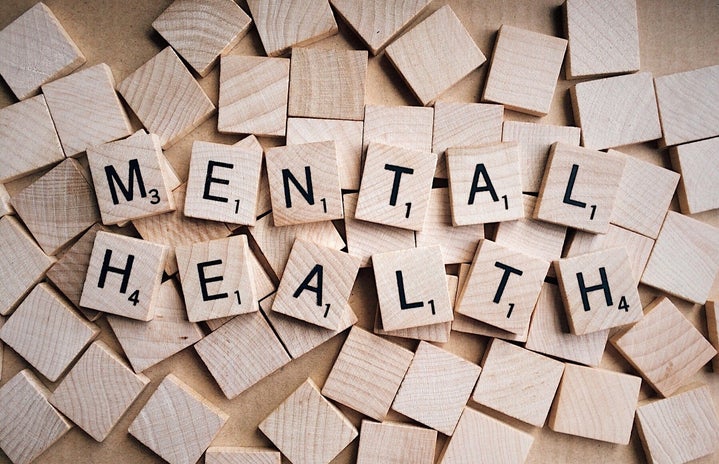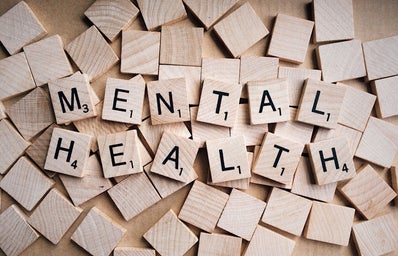For some perspective, I’m writing this on election day… mental health is always paramount and needs to be top priority, especially right now.
- Get organized and plan out your time
-
With so much on our plates, (especially these days,) day to day tasks and obligations can feel mundane and draining. It is salient at the moment to not further overwhelm ourselves by poorly managing time and falling behind in school, work, or in other aspects of life. This is definitely much easier said than done but there are many ways to begin better time management and organizational skills. One primary way of doing so, is to start utilizing a planner, calendar, or to-do lists, (if you don’t already.) In planning your time and framing out your week, month etc. be thoughtful about what is realistic and feasible for you to accomplish one day at a time. It is helpful to plan on a day to day basis with respect to upcoming events, deadlines and obligations but aim to take care of the things and tasks as they come to you in the moment. Prioritize tasks by what is the most pressing and by what will affect you the soonest. Helpful life organization and planning starts with finding a format, (e.g. on paper, online,) that is optimal for you. Feelings of stress, anxiety, nervousness etc. can be reduced when you have an idea of what the coming days will look like, of expectations and of how you’re going to accomplish what you want to and what is needed from you.
- Implement stretching and meditation into your routine
-
Speaking from personal experience, incorporating various series of stretches into my daily routine on top of taking a little bit of time to meditate has improved my focus, posture and can positively impact my mood. Most people feel anxious from time to time and for some people who deal with anxiety, its symptoms can manifest in the body and can affect people physically. With general feelings of anxiousness and just being stressed, we can experience physical discomfort and muscle tension often carried by most in the upper-back body. The point being, stretching can help physically in alleviating muscle tension/soreness, better sleep quality and promotes better posture. Feeling good and grounded physically can positively correlate with feeling similarly mentally, start with watching some Youtube videos and researching beneficial stretching routines! Meditation in its truest form and practice can seem unattainable to do but taking a few minutes per day to sit, clear your head and work on breathing is enough meditating in itself. One major recommendation I’d suggest is taking 5 minutes (after waking up and before bed) in child’s pose. This popular yoga pose can improve one’s posture throughout the day (by elongating the spine) is mentally calming and is good for digestion!
- Connect with someone
-
Being in isolation and quarantining for the majority of the year has felt socially detrimental to many. With not being able to maintain the same physical contact and more than likely being unable to see family members, or whatever other circumstance you could be feeling disconnected. Luckily, in today’s world we can still be connected through many technological forums and platforms. When this may not feel like enough, make a plan to connect with a person or loved one in a safe and preferably socially distanced manner. It’s imperative that we all continue to do our part in facing the Covid-19 global pandemic and much else, while finding and creating ways to feel connected with others in certain capacities. There are many resources on community, state and national levels many of which can be researched and accessed through internet based platforms.
- Ask for help and offer help
-
If you’re truly struggling mentally or with a mental health condition it is crucial to recognize that. Strongly consider reaching out to a person, organization, or resource in order to get help and know that it’s not something to be ashamed of and that your feelings are always valid! Even in life generally, especially with the state of the world right now, try not to hesitate in expressing your needs for assistance and leniency. Reach out to your boss, teacher, neighbor, or whoever else and strive to be up front with how you’re doing. If you need to be accommodated in some way, it’s worth it to attempt to put it out there to potentially get help. A mutually beneficial way to help yourself is through helping others too. Look for ways to engage with your community, volunteer or use some of your time exerting effort towards supporting others.
- Do something active
-
It’s no secret that physical activity is one of the most immediate ways that we can naturally boost serotonin levels, (which contributes to boosted mood and well-being.) Exercise has extensive positive effects physically and mentally. While it can feel daunting to make time for physical activity and to possibly implement an exercise regimen into daily life, it doesn’t have to happen in one fell swoop. Start small and work your way up. Even if you venture out on a small jog or just follow a workout video online, anything more than you’ve been doing is progress. It can be as simple as going for a walk and looping the block a couple of times to increase blood and oxygen flow throughout your body and to get some fresh air. Motivation, taking the first steps, and staying consistent in being physically active are all key. You truly have to be your own biggest supporter, find the intrinsic motivation within and get/stay active for no one else but yourself.
- Eat in a way that’s balanced for you
-
A healthy and balanced diet can be a highly impactful factor in evaluating a person’s well-being. But “healthy” and “balanced” can look different on everyone’s individual level. Generally, a varying diet consisting of foods that are rich in starch/fiber, iron, vitamin C, calcium and more is best. Each person’s body is different and we all require different amounts and categories of food intake. However, it is a good rule of thumb to emphasize utilizing health conscious ingredients and elements into daily meals. Eating habits can affect and alter overall health in numerous ways and eating well can preserve brain functionality and assists in keeping people mentally sharp into aging. Consider meal tracking in alignment with general mood over the course of a few days and evaluate if poorer mood may be a reflection of poor consumption. Eating completely clean and well is something many struggle with but making small adjustments in diet can have a significant impact on one’s health and in turn mental well-being.
- Do an activity that brings you joy
-
Again, living during a global pandemic many activities, events, and social settings are not currently happening, or are much more limited. Instead of feeling down about what we can’t do it’s important to gain perspective and to be creative in formulating ideas for entertainment. Adaptability is very necessary at this time and it’s continually valid to be reminded that many people are making sacrifices and not going out (to the former) fullest extent. Looking to personal hobbies and safe, socially-distanced activities are primary choices in soughting after enjoyment during these times. So aim to carve out some time to read that book you’ve been waiting to get into, play the new video game that just came out, get food (or takeout!) from the local spot that you love. When so much feels and is out of our control, it is good to hold onto what you can and to not take the little things and moments for granted.
- Sleep, but more than that..
-
We’ve all heard the sleep statistic that “getting eight hours” is the average optimal amount of time that a person should rest each night. Unfortunately, that is just unrealistic for many whether you’re a student, parent, have a demanding career etc. It’s idealistic to yearn for the most favorable and consistent ranges of time sleeping, especially when other factors like sleep disorders are at play. There are resources and pathways out there to help in achieving better sleep and improving upon sleep disorder symptoms. Many ways to help in improving sleep quality fall into small-scale categories too. Stretching before bedtime increases better quality of sleep, upgrading bedding, (i.e. having a good mattress, mattress pad,) and attempting to establish a solid circadian rhythm are all factors. Getting enough sleep may not always happen but making conscious decisions with your sleep quality in mind, may ultimately enhance it and give the body and mind the time to rest and recharge that it most definitely needs.
- Maintain and create healthy habits
-
It’s highly advantageous to be goal-oriented in both the short and long-term. Maintaining healthy and good habits isn’t always an easy feat and takes personal dedication and drive. Creating these habits is where the real work happens though. The myth that it takes 21 days to form a habit is not realistic for the majority. Forming new habits takes time, repetition, planning, and adaptability. Take the time to step back and actively examine what’s most important to you in life and how you may echo and reflect that through your actions. Having certain good habits and healthy behaviors can provide us with purpose and satisfaction that is essential to solid mental health.
- Limit distressing media
-
Simply living through this time characterized by tragedy, uncertainty and division it’s almost entirely inevitable to not have been exposed to the media. I myself fall victim to it time and time again, falling over the line between being informed and becoming entirely overwhelmed. It is so necessary to take a step back from the news, social media and the manifested mass division for certain amounts of time. Obsessing, dwelling and being on edge about what’s happening at all times is extremely unhealthy mentally. Everything can become all consuming and can totally capture your mind from being on anything else. Try and refrain from excessive social media use and news viewing and hesitate to feed into the negativity of the internet- odds are you won’t get anywhere with some people anyways. So, take time away from your devices and designate time spent on them in limited quantities during the day. We must all stay updated and informed, particularly during this time but there is quite a fine line between what’s enough and what is over the top.



